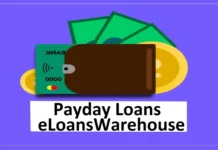Payday loans are known for being short-term, low-balance, high-cost, and extremely accessible financing options. This mix makes them both a salvation and a trap. You can argue for a long time about whether payday loans are worth obtaining, but the truth will always be somewhere in between.
If you use them wisely and cautiously, payday loans can help you with your temporary financial difficulties or unexpected expenses. Plus, they’re pretty easy to get. Let’s see whether you can qualify for a payday loan. Spoiler: we’re 99% sure you can!
What Is a Payday Loan?
A payday loan is designed to help under-banked individuals with cash shortages and small financial hardships. This is an expensive debt that comes with several limits. The amount you can get with a payday loan is commonly capped at $1,000 or even $300, depending on the state. They are called so as they usually are due to a borrower’s next paycheck. Thus, loan terms are pretty short and range between 2 and 4 weeks, with rare exceptions.
How Do Payday Loans Work?
Payday loans are available either in a storefront or online, depending on the loan provider. Like with any other loan, you should decide on a payday lender first. After you choose a lender, you need to send a loan request. To do this, simply fill out an application form.
After you complete it, a lender will review your details and turn back to you with an answer. Those who apply online typically receive loan decisions via email. The process is prompt due to the absence of a hard credit check. This also means that lenders are almost indifferent to a borrower’s credit score. Instead, they look at their ability to repay the loan.
If you get approved, a lender will deposit the loan amount into your active bank account. But first, you need to ensure loan agreement terms are good for you. Read your contract carefully and pay special attention to traits that can affect you financially.
The whole process typically takes 24 business hours or less. That is why payday loans are almost ideal for situations when you need money fast. The repayment is made in one lump sum after your next paycheck arrives. You need to repay not only the amount you borrow but also the lender’s fees. There are two repayment methods that payday lenders typically practice: automatic withdrawal from your checking account and post-dated checks.
Payday Loan Basic Requirements
Let’s get it straight: each payday lender may have its requirements. However, there are some basics that all borrowers need to meet. Take a look at the list below:
- Reach the age of majority (18 years old for most states)
- Be a permanent US resident
- Have an active bank account
- Confirm your income with pay stubs or bank statements
Additionally, you will be asked to provide your personal and financial information, such as your full name, permanent address, cell phone number, valid email, banking information, employment status, and Social Security number. Most lenders will also ask you to specify a loan purpose. However, they usually don’t track the way you spend money after you receive it.
What Documents Do You Need to Apply for Payday Loans?
The set of documents you need to provide is typically small. In most cases, you need to bring your valid ID or drive license and income confirmation. This is much different from an extensive set of documents needed when you apply from traditional lenders. That is why payday loans are often a choice for people who have no time to wait.
How Do Payday Loans Differ from Other Types of Loans?
Let’s take a look at the most significant differences based on the following features:
Interest rates and fees
Payday loans come with one of the highest interest rates in the lending industry. Although they remain relatively affordable due to limited terms and amounts, experts often classify these loans as predatory.
Loan amounts
Payday loan amounts are limited to $1,000, with some states setting lower limits that range between $300 and $500. Most other loans come with higher loan amount caps of up to $5,000 or even $50,000.
Repayment terms
You must repay a payday loan in one lump sum by your next payday. This loan feature often creates a circle of debt. Personal loans are commonly repaid in equal monthly installments within 3 to 60 months.
Credit checks and credit score requirements
Payday loan options don’t require borrowers to go through hard credit inquiries through major credit bureaus. Instead, lenders assess a borrower’s creditworthiness based on information from open sources. How long does a payday loan stay in the system? If you default, it will stay there for up to 6 years, just like any other default payment. But if you pay on time, a payday loan leaves no trace in the system. There will be no records of a payday loan in your credit report if you pay on time.
More than that, payday lenders are not focused on an applicant’s credit score. Payday lenders are widely known for accepting applications from people with bad or no credit.
Most personal loan lenders initiate hard checks that can hurt an applicant’s credit history. Also, they consider your credit rating one of the most important factors. If your credit score is low, you can get worse loan terms or be denied.
What Are Payday Loan Interest Rates?
If you’ve ever heard about payday loans, one of the things that you probably know about them is their extremely high price. But how is the interest rate on a payday loan calculated? This question often arises as most payday lenders express loan costs in flat fees. They are typically $10 to $30 for each $100 borrowed. By knowing the fee amount and the loan repayment term, you can calculate an annual percentage rate (APR). This will help you compare the costs of payday loans with other options.
Suppose that you borrow $500 for two weeks with a $15 flat fee. Your total loan cost will be $575. To calculate a payday loan APR, you should do the following:
- Divide your total interest by the initial loan amount: $75 / $500 = 0.15.
- Multiply the result by the number of days in a year: 0.15 x 365 = 54.74.
- Divide the number you get by your loan term in days: 54.74 / 14 = 3.91.
- Multiply the result by 100 to get a percentage: 3.91 x 100 = 391%.
As you can see, a payday loan APR is much higher than the one you can get on other loan types. However, payday loans are short-term options with limited loan amounts, so you don’t use them within the whole year. This holds them back from becoming unmanageable.
CFPB and Payday Loans
On July 7, 2020, the Consumer Financial Protection Bureau removed the requirement that forced payday lenders to make a mandatory check of a borrower’s ability to repay the funds. However, it left in place the requirement that limited the number of withdrawal attempts that a lender can make to collect a loan cost from a borrower’s checking account.
What does it mean to you? Lenders now don’t exercise tight control over your financial situation. On the one hand, this means that getting a payday loan becomes even easier. On the other hand, this can lead to insolvent borrowers accumulating debts that they are unable to repay. This may close the debt circle around their finances even tighter.
Are Payday Loans Risky?
Payday loans are considered risky. According to the statistics, nearly 80% of payday loans are rolled over or renewed as borrowers are not able to repay them on the first due date. The rollover procedure involves paying fees for extending loan terms without reducing the amount you owe. This means that the loan cost becomes even higher. If you do this frequently, you can end up paying even more than you’ve borrowed and still owe the initial amount.
Additionally, payday loans can damage your credit in case of default or late payments. Plus, a lender may turn to a collections agency to get the money back from you. It may be a stressful experience that comes with annoying phone calls, scare tactics, and various abusive actions against you.
Thus, payday loans are not only about fast relief from small cash flow issues. Although they allow you to borrow money fast in case of a financial emergency, they need to be treated with caution.
What Is the Legal Status of Payday Loans?
In most states, payday loans are legal and subject to state law regulation. However, 16 states and the District of Columbia prohibit them in order to protect their residents from unfair lending practices. Also, many states set various limits on payday loan options. They may include loan amount caps, extending repayment terms, and loan cost restrictions. Before you take out a payday loan, check out your state law regulation to ensure this form of borrowing is legal in your area.
Does a Payday Loan Affect My Credit Score?
In most cases, loans till paycheck are safe for your credit. Payday lenders don’t perform hard pulls. When you apply, it’s not reported to credit bureaus, as is the case with timely payments. Thus, payday loans don’t help you build credit and don’t drop it in any way, even if you apply several times within a short period. However, paycheck loans can easily hurt your credit score if you pay late or default.
Alternatives to Avoid Payday Loans
Even if you have bad credit and need money immediately, paycheck loans are not the only option. Consider other easy ways to get quick cash.
Installment loans
An installment loan is an option that can meet your longer-term needs and reduce the financial burden. You can get between $500 and $5,000 and make fixed monthly payments within 2 to 24 months.
Peer-to-peer loans
Peer-to-peer platforms allow you to borrow money from other individuals without undergoing a credit check. Often, you can get a small loan with a lower interest rate compared to payday loan options.
Pawn shop loans
If you need cash on hand immediately, you can pawn some of your valuable belongings and get some portion of their price right away. Make sure to repay the funds as agreed so as not to lose your collateral.
Credit card cash advances
If you have a valid credit card that allows withdrawals, you can borrow money against the available balance. Just visit a branch or the nearest ATM and withdraw the needed amount within your credit limit. The interest rate on such an amount will accrue right away.
Cash advance apps
Cash apps can help you get the funds on the go in a few taps. You can install a cash advance app on your phone and use it in case of need. They work similarly to other online loans but offer small loan amounts, often at lower rates.
Bottom Line
Getting a payday loan is quite simple for an average American who has a stable source of income. Such loans have a few eligibility criteria and don’t require many documents to apply. However, they charge a price for their accessibility. This includes high loan costs and the potential danger of getting into a debt trap. Before applying for a payday loan, make sure you can afford this debt.
FAQ
Can I Get a Payday Loan with Bad Credit?
Bad credit is not an obstacle to getting a payday loan. If you have a steady income and are capable of repaying the funds when due, you’re welcome to apply. Just keep in mind that bad credit can result in less favorable loan conditions.
Do Payday Loans Worth the Risk?
Payday loans can be worth the risk if delaying solving a problem results in negative financial consequences and will cost you more than the lender’s fees. You also need to be realistic about your ability to repay the loan.
Where Can I Get a Payday Loan?
Payday loans are offered by online loan providers, fintech services, and connecting companies. Do your research on the Internet to find a suitable lender in your area. If you’re a member of a certain credit union, you can also contact it for payday alternative loans (PADs).
Are There Payday Loans with No Checking Account Requirements?
In most cases, you need to have a valid checking account to get a payday loan. However, if you apply in a store, you can receive cash or a check. This way, you will be asked to provide a post-dated check to repay the loan and may not be obliged to have a bank account.
Can You Get a Payday Loan If You Defaulted on One?
Yes, you can, but your options will be limited. Lenders don’t want to deal with payday loan borrowers who can’t pay the money back. Also, you can get a loan at less favorable terms because of your past repayment issues.






























![How to Set Up Face ID on iPhone X [Step-BY-Step] Face ID](https://mobupdates.com/wp-content/uploads/2017/12/12E-100x70.png)


![Top 6 Alternatives to 10 Minute Mail – [2021]](https://mobupdates.com/wp-content/uploads/2018/05/10-Minute-Mail-Alternative-218x150.png)






 Online casino
Online casino